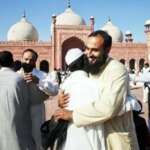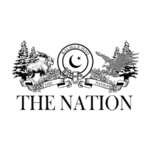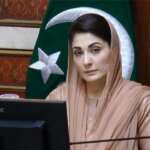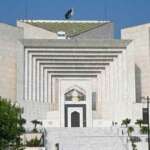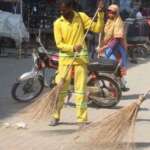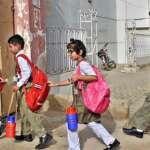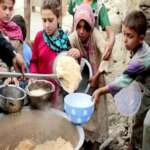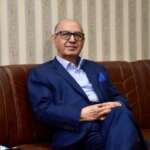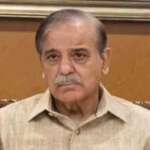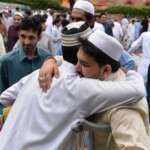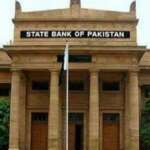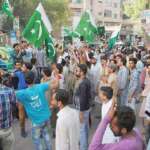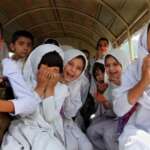A Closer Look at Pakistan
Pakistan Flag

Pakistan Formation Date
August 14, 1947
Pakistan Capital Name
Islamabad
Pakistan Neighbours
Exploring Pakistan
Pakistan: A Country of Rich History, Vibrant Culture, and Breathtaking Landscapes
Pakistan, located in South Asia, is a country that often evokes curiosity and fascination among travelers. With a population of over 220 million people, it is the fifth most populous country in the world. Its strategic location at the crossroads of South Asia, Central Asia, and the Middle East has played a significant role in shaping its history and culture. The name Pakistan is derived from the Urdu word "Pak" meaning pure and "Stan" meaning land, which translates to "Land of the Pure." This name was given to the country by its founder, Muhammad Ali Jinnah, in 1947 when it gained independence from British rule.
Key Takeaways:
- Pakistan is a diverse country with a rich history and culture.
- It is strategically located at the crossroads of South Asia, Central Asia, and the Middle East.
- The country's name translates to "Land of the Pure."
Geography:
Pakistan's geography is as diverse as its people. It is home to a variety of physical features, including the towering peaks of the Himalayas in the north, vast deserts in the south, and fertile plains in between. The country is also blessed with abundant natural resources such as coal, natural gas, oil, and minerals like copper and gold. The climate varies from region to region, with hot summers and mild winters in the south and cold winters with heavy snowfall in the northern areas.
Origin and History:
Pakistan's history dates back to ancient civilizations such as the Indus Valley Civilization, which flourished around 2500 BCE. Over the centuries, the region has been ruled by various empires, including the Mauryans, Mughals, and British. The country's modern history began in 1947 when it gained independence from British rule and became a separate nation for Muslims in South Asia.
Government and Politics:
Pakistan is a federal parliamentary republic with a multi-party political system. The country is divided into four provinces, Punjab, Sindh, Balochistan, and Khyber Pakhtunkhwa, along with two federally administered territories, Islamabad and Gilgit-Baltistan. Pakistan also shares borders with India, Afghanistan, Iran, and China. Its geopolitical relationships have been a subject of international interest due to its strategic location and involvement in regional affairs.
Commerce and Economy:
Pakistan's economy is the 24th largest in the world in terms of purchasing power parity. The country's major economic sectors include agriculture, industry, and services. It is also a member of the World Trade Organization and has strong trade relations with countries like China, the United States, and the United Kingdom. The Pakistani Rupee is the official currency of the country.
Demographics:
Pakistan is a diverse country with a population that is predominantly Muslim (96%). The remaining population consists of Christians, Hindus, Sikhs, and other religious minorities. Urdu is the national language of Pakistan, but there are also many regional languages spoken throughout the country. The population is relatively young, with a median age of 23 years.
Culture:
Pakistan's culture is a blend of various influences from its ancient civilizations, Islamic traditions, and modern-day practices. The country is known for its vibrant art scene, with traditional forms such as calligraphy, pottery, and handicrafts still thriving. Music and dance are also integral parts of Pakistani culture, with folk music and traditional dances like the Bhangra and Kathak being popular. The country also celebrates a variety of festivals and holidays, including Eid-ul-Fitr, Eid-ul-Adha, and Independence Day.
Languages and Religion:
Urdu is the national language of Pakistan, but there are over 70 regional languages spoken throughout the country. The most widely spoken regional languages include Punjabi, Pashto, Sindhi, and Balochi. Islam is the dominant religion in Pakistan, with over 96% of the population practicing it. Other religions practiced in the country include Christianity, Hinduism, and Sikhism.
Education and Healthcare Systems:
Pakistan has made significant strides in improving its education system in recent years. The country has a literacy rate of 62%, with efforts being made to increase access to education for all. There are numerous academic institutions in Pakistan, including prestigious universities like Quaid-i-Azam University and Lahore University of Management Sciences. The healthcare system in Pakistan is also continuously evolving, with government initiatives aimed at improving public health. Private healthcare facilities are also available in major cities.
Sports and Recreation:
Pakistanis are passionate about sports, with cricket being the most popular sport in the country. The national cricket team has achieved international success, winning the Cricket World Cup in 1992 and being runners-up in 1999. Other popular sports include hockey, football, and squash.
Tourism:
Pakistan is a hidden gem for travelers looking to explore off-the-beaten-path destinations. The country is home to breathtaking landscapes such as the Karakoram mountain range, which includes K2, the second-highest peak in the world. The ancient city of Taxila, a UNESCO World Heritage Site, is also a must-visit for history enthusiasts. Other popular tourist attractions include the Badshahi Mosque, Shalimar Gardens, and the Hunza Valley.
Travel Information for Foreign Visitors:
Traveling to Pakistan requires a valid visa, which can be obtained from Pakistani embassies or consulates in the visitor's home country. It is also recommended to have a valid passport with at least six months of validity remaining. Health and safety precautions should be taken while traveling in Pakistan, including avoiding areas with political unrest and following local customs and etiquette. The official currency is the Pakistani Rupee, and credit cards are accepted in major cities. The cost of living in Pakistan is relatively low, with budget-friendly accommodations and food options available.
Quotes:
"Pakistan not only means freedom and independence but the Muslim ideology which has to be preserved, which has come to us as a precious gift and treasure." - Muhammad Ali Jinnah
"Pakistan is like a hidden treasure. Those who discover it will find it worth their while." - Malala Yousafzai
Conclusion:
Pakistan is a country with a rich history, diverse culture, and stunning landscapes waiting to be explored. From its ancient civilizations to its modern-day developments, Pakistan offers a unique experience for travelers seeking an authentic cultural experience. With continuous efforts being made to improve its economy and infrastructure, Pakistan's future looks promising as it continues to attract visitors from all over the world.
Pakistan Highest Point Name
The highest point in Pakistan is K2, located in the Karakoram range of the Himalayas at 8,611 meters or 28,251 feet. It is the second-highest mountain in the world, after Mount Everest, and the highest point in Pakistan.
Pakistan Capital Longitude
Islamabad, Pakistan is located at a longitude of 73.0479° E.
Pakistan Capital Latitude
') The capital of Pakistan is Islamabad, and its latitude is 33.7°N.
Pakistan Official Languages
The official languages of Pakistan are English and Urdu.
Pakistan Ethnic Groups
Pakistan is a multi-ethnic and multilingual nation. Its population consists of Punjabis (44.68%), Pashtuns (15.42%), Sindhis (14.1%), Saraikis (8.38%), Muhajirs (7.57%), Baloch (3.57%), others (including Chitralis, Hindko speakers, Kashmiris, and Shina speakers) (6.28%). The Punjabis are the largest ethnic group, making up 44.68% of the population. The Pashtuns are the second largest at 15.42%, and the Sindhis are the third largest ethnic group at 14.1%. Other significant ethnic groups include Saraikis (8.38%), Muhajirs (7.57%), and Baloch (3.57%).
Pakistan Religions
Pakistan has a diverse population and a wide variety of religions represented. The majority of the population (~95%) is Muslim, with a large minority of Christians (~3%), Hindus (~1%), Sikhs (~0.25%), Ahmadis (~0.2%) and Parsis (~0.02%). The country is an Islamic Republic and the constitution of Pakistan guarantees equal rights to all citizens, including freedom of religion. The Government, however, has on occasion targeted religious minorities, resulting in violations of civil and political rights. Some of the key religious divides in Pakistan are between Shia and Sunni Muslims and between Sufis and Deobandis. All faiths in Pakistan are respected, though there are sometimes tensions between different groups, often as a result of extremist activities.
Pakistan Total Area
The total area of Pakistan is 881,913 square kilometers.
Pakistan Land Area
The total land area of Pakistan is 803,940 square kilometers (310,401 square miles).
Pakistan Water Area
According to the CIA World Factbook, the total water area in Pakistan is 0 sq km.
Pakistan Total Population
The total population of Pakistan according to the 2020 Census is 220,892,340.
Pakistan Currency Name
The country currency name of Pakistan is the Pakistani Rupee (PKR).
Pakistan Currency Code
The country currency code for Pakistan is PKR (Pakistani Rupee).
Pakistan Currency Symbol
The Pakistani currency is the Pakistani Rupee (PKR) and its symbol is ₨.
Pakistan Calling Code
The country calling code for Pakistan is +92
Pakistan Internet TLD
www.aveholidays.pk
How to Say "Pakistan" In Different Languages?
- Bengali
- পাকিস্তান (bn-BD)
- Mandarin
- 巴基斯坦 (zh-CN)
- French
- Pakistan (fr-FR)
- German
- Pakistan (de-DE)
- Bengali
- পাকিস্তান (bn-IN)
- Hindi
- पाकिस्तान (hi-IN)
- Indonesian
- Pakistan (id-ID)
- Hebrew
- פקיסטן (he-IL)
- Italian
- Pakistan (it-IT)
- Japanese
- パキスタン (ja-JP)
- Malay
- Pakistan (ms-MY)
- Polish
- Pakistan (pl-PL)
- Portuguese
- Paquistão (pt-PT)
- Romanian
- Pakistan (ro-RO)
- Russian
- Пакистан (ru-RU)
- Spanish
- Pakistán (es-ES)
- Turkish
- Pakistan (tr-TR)
- Ukrainian
- Пакистан (uk-UA)
- Vietnamese
- Pa-ki-xtan (vi-VN)
Pakistan Popular Holidays
- Muharram
- 1 Muharram (10 Muharram)
- First Islamic Day
- 12 Rabi-ul-Awwal
- Islam's Triumph at Badr
- 17 Ramadan
- Lailatu-l-Me’raj
- 27 Rajab
- Eid-ul-Milad-Unknown-Nabi
- 12 Rabi-ul-Awwal
- Shahb-e-Miraj
- 27 Rajab
- Laylat al-Bara'at
- 17 Ramadan
- Hijri New Year
- 1 Muharram
- Eid al-Ghadeer
- 18 Dhu al-Hijjah
- Eid al Mawlid
- 10 Muharram
- Ghame-al-Nabi
- 12 Rabi-ul-Awwal
- Independence and Solidarity Day
- 11 February
- Basant
- 13 February (14 February)
- Valentine's Day
- 14 February
- Education Day
- 9 March
- Pakistan Women's Day
- 11 March
- Safar-e-Azam
- 14 March
- The Declaration of the Islamic Republic of Pakistan
- 23 March
- Pakistan Day
- 23 March
- Pakistan Resolution Day
- 23 March
- Islamic Republic Day
- 23 March
- Pakistan Day Parade
- 23 March
- Shab-e-Masih
- 25 March
- Freedom of Information Day
- 3 April
- Jashan-e-Baharan
- 13 April (14 April)
- Good Friday
- 19 April
- Earth Day
- 22 April
- Mela Chiraghan
- 25 April (27 April)
- International Labour Day
- 1 May
- Labour Day
- 1 May
- Political Workers Day
- 5 May
- Mother's Day
- 13 May
- Chehlum of Imam Zain-ul- Abideen
- 14 May
- Eid ul Fitr
- 24 May (25 May)
- Eid Mubarak
- 24 May (25 May)
- Chaand Raat
- 24 May
- Eid ul Fitr
- 24 May (25 May)
- Juma Tul Wida
- 25 May
- Shuhada Day
- 6 June
- Martyr's Day
- 13 June
- World Blood Donors Day
- 14 June
- Father's Day
- 21 June
- Mehndi of Hazrat Fatima
- 3 July
- Yom u-l-Quran
- 7 July
- Shab-e-Qadr
- 26 July (27 July)
- Lailat-ul-Qadr
- 26 July (27 July)
- Ashura
- 30 July (11 August)
- Eid ul Adha
- 31 July (3 August)
- Eid ul Azha
- 31 July (3 August)
- Mehndi of the Prophet
- 7 August
- Mela Chichawatni
- 7 August (9 August)
- Day of Ashura
- 10 August (11 August)
- Ashura-ul-Haraam
- 10 August (11 August)
- Minority Day
- 11 August
- Peace Festivals
- 13 August (15 August)
- Bab-e-Pakistan
- 14 August
- Independence Day
- 14 August
- Jashan-e-Melli
- 14 August
- Mela Peshawar
- 27 August (28 August)
- Defence of Pakistan Day
- 6 September
- Eid-e-Qurban
- 11 September (14 September)
- Autumn Festival
- 27 September (28 September)
- Mela Sheesh Mahal
- 13 October (15 October)
- Afzal Khan's Birthday
- 24 October
- Mehndi Night
- 25 October
- Hazarat Ali's Birthday
- 30 October
- Chehlum of Imam Hassan
- 31 October
- Eid Milad Un Nabi
- 1 November
- Guru Nanak's Birthday
- 19 November
- Chehlum of Imam Hussain
- 25 November
- Chehlum Imam Hussain
- 5 December
- Quaid-e-Azam Day
- 25 December
- New Years Eve
- 31 December



